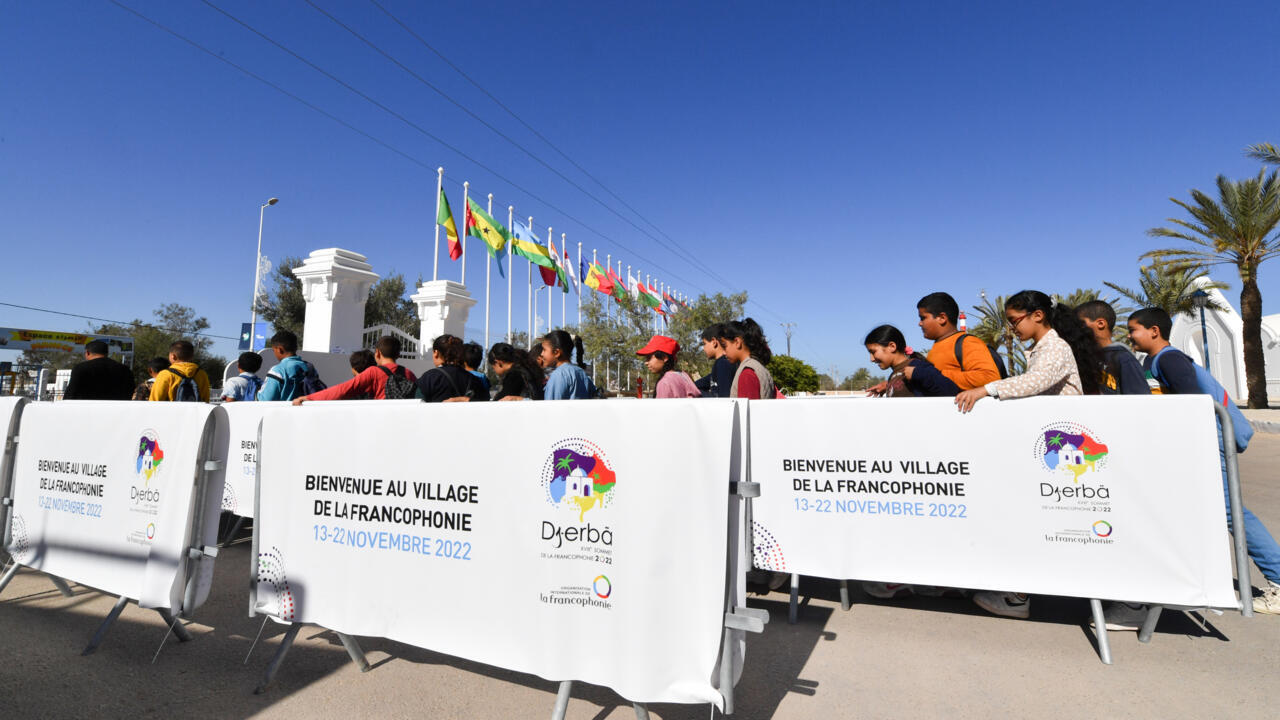While the two-day summit will officially focus on "digital as a vector of development", it will also be an opportunity for Western and African leaders to discuss hot topics such as the Russian invasion of Ukraine. on which a gap seems to separate them.
Many African countries deplore what they perceive as a lack of international solidarity with the continent in the face of its own crises, noting that Europe has quickly mobilized on the other hand to come to the aid of Ukraine.
This 18th summit of the International Organization of La Francophonie (OIF) on the island of Djerba will also be the occasion to celebrate, belatedly, the fifty years of an organization founded in 1970 and with 88 members who are not all French-speaking. , such as Armenia, Egypt, Moldova, the United Arab Emirates or Serbia.
The summit coincides with the final phase of the COP27 on the climate in Egypt and follows a meeting of the G20 in Indonesia which was dominated by the war in Ukraine, an observer country within the OIF.
In total, 89 delegations are present, seven international organizations and more than thirty leaders including the Frenchman Emmanuel Macron, the Canadian Justin Trudeau, the President of the European Council Charles Michel or the Senegalese Macky Sall.
The re-election of the Secretary General of the OIF, the Rwandan Louise Mushikiwabo, the only candidate in the running, is also on the program of the two days of meetings between representatives of an area of 321 million French speakers who will more than double to 750 million in 2050. , thanks to African demography.
Tunisian special forces patrol near the site of the Francophonie Summit, November 18, 2022 FETHI BELAID AFP
Before the summit, Ms. Mushikiwabo told AFP that she wanted to ask member states to "redouble their efforts" in the face of a decline in French in international organizations.
Despite critical voices denouncing an "inaudible" Francophonie, Mushikiwabo deemed her organization "more relevant than ever" and able to "bring a little added value" to "most of the world's problems", citing COP27 .
According to an official from Canada, a heavyweight in the Francophonie, the organization "can be a positive force" on issues such as "peace, economic prosperity and the consolidation of democracy".
This official indicated that Canada also wanted to echo, during the summit, the "concerns" for "democratic participation" in Tunisia since President Saied seized full powers in July 2021, and which is going through a serious socio-economic crisis.
Tunisia hosts this meeting which is usually held every two years, after two postponements - in 2020 due to Covid-19, then in the fall of 2021 after the coup by Mr. Saied, accused of having put an end to a unique democratic experience in the Arab world.
"Economic Francophonie"
Holding the summit in Tunisia is "a success" for its president because it will "take him out of his isolation at least temporarily", according to French political scientist Vincent Geisser.
But the summit will not eclipse the crisis that Tunisia is going through, as an attempt by demonstrators to go to Djerba on Friday reminded us of the disappearance, two months ago in a shipwreck, of 18 migrants. Tunisians, who left from a neighboring town.
A presidential guard on duty in front of the site hosting the 18th Francophonie Summit, November 18, 2022, on the Tunisian island of Djerba.
FETHI BELAID AFP
Like many members of the OIF, the Canadian province of Quebec intends to take advantage of the summit to "increase (its) presence in French-speaking Africa where business opportunities are increasing".
"Leader in terms of economic Francophonie", Quebec will insist via its Prime Minister François Legault "on the importance of French, the third business language in the world", according to an official press release.
For the Senegalese Minister for La Francophonie, Penda Mbow, "we will judge French-speaking countries on their ability to reduce the digital divide within their society".
Ms. Mbow also predicts an increased role for La Francophonie in the management of international crises.
But for Alioune Tine, a figure in Senegalese civil society, the OIF has shown itself "totally powerless, in the face of fraudulent elections, third terms (of African leaders, editor's note) and military coups ", in Mali , Guinea or Burkina Faso.
© 2022 AFP

